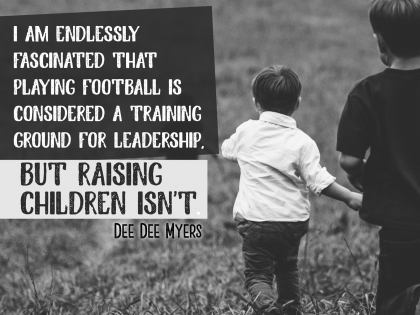7 Signs That You’re Not Assertive Enough
7 Signs That You’re Not Assertive Enough
Your parents may have raised you to be accommodating and to put the needs of others first. However, there’s a limit to how accommodating you can be without harming yourself.
Eventually, you start to feel like others are taking advantage of you. At the same time, you worry that others will be upset if you refuse a request. It’s an uncomfortable predicament.

Ad by www.Faithraiser.net
Assertiveness is a part of maintaining good mental health and a balanced life. It’s important to have boundaries and give your own needs the priority they deserve.
Could you get better results by becoming more assertive? Watch for these signs:
1. You can’t say “no.” When you can’t assert yourself, you say “yes” a lot more than you want. You find yourself feeling like a victim, because you feel you’ve been pushed into doing things you don’t want to do. After all, it’s their fault for asking, right? No, it’s your fault for failing to say the simple word, “No.”
- Use your voice and freedom of choice to refuse requests that are too inconvenient or disagreeable to you. No one can agree to everything. It’s okay to consider what is best for you.
2. You fear rejection. You can counter this fear by working on your self-confidence. The less you worry about rejection, the more assertive you’ll become. Ultimately, this is the primary reason most people aren’t assertive. The fear of rejection is among the strongest acquired fears.
3. Your needs are consistently unmet. Are you wishing that others will be as nice as you are and look out for your best interests? It doesn’t work that way. When you’re too accommodating, people lose respect for you. Subsequently, they have little concern for your needs.
- Ensure that you’re meeting your own needs. If you can get others to help, so much the better.

>> More about this image at Inspirational Posters
4. Accepting responsibility is challenging for you. Those that struggle with assertiveness avoid taking responsibility. Can you accept criticism and compliments? If not, you’re probably not very assertive.
- Enhancing your self-confidence is among the most effective ways to increase your ability to accept responsibility. The result is a greater ability to be assertive.
5. You avoid conflict at all costs. Are you unwilling to confront someone that is mistreating you? Would you rather have peace regardless of the sacrifice?
- Conflict is a normal part of human interaction and should be expected from time to time. It’s a necessary part of reaching a consensus and resolution. Learn to embrace conflict and appreciate what it can accomplish.
6. You say, “I’m sorry” more than you should. There are times that apologies are appropriate. However, there is no reason to apologize constantly.
- Attempt to go one entire day without saying that 2-word phrase. Notice how challenging it can be. Keep track of how many times you’re tempted to apologize.
[wpgfxm_contentbox width=”90%” bg_color=”#F1F8FB” b_color=”#C1D2D9″ style=”solid” top=”1px” right=”none” bottom=”1px” left=”none” radius=”0px”]
Seeing How You React. If You’re In Control, They’re In Control.”
– by Tom Landry –
More about this quote at
Inspirational Downloads
[/wpgfxm_contentbox]
7. You’re hesitant to share your opinion. When you’re going out with friends, do you ever choose the bar, restaurant, club, movie, or other destination?
- Let others know what you think. If you’re honest with yourself, you have an opinion on everything. You may not have a strong preference most of the time, but you can still share your opinion.
Assertiveness means sharing your thoughts and opinions. It also means making yourself a priority.
Without sufficient assertiveness, your self-esteem and life suffer. Boost your self-confidence and try being more assertive. You’ll find that life is easier and you’ll gain the respect of your peers.
Featured Personal Development Ebook:
Many couples struggle with loving and thoughtful communication.
Loving communication can be integrated into listening, talking, body language, daily habits and other activities.
In this guide, learn more about adding loving communication to your relationship by discovering how to use all these forms of communication to enhance your relationship and experience a more joyful and fulfilling love.
You will receive the file/s below (in one ZIP file) for your personal use:
MAIN EBOOK: - The Art of Loving Communication (29-page PDF)
WORKSHEET: - The Art of Loving Communication (4-page PDF)
BONUSES:
- 15 Reasons to Embrace Criticism (5-page PDF)
- Lose Weight by Adding These Inexpensive Foods to Your Diet (5-page PDF)
- The-Generous-Giraffe-Fable (4-page PDF)
View more gifts at PersonalDevelopment.





